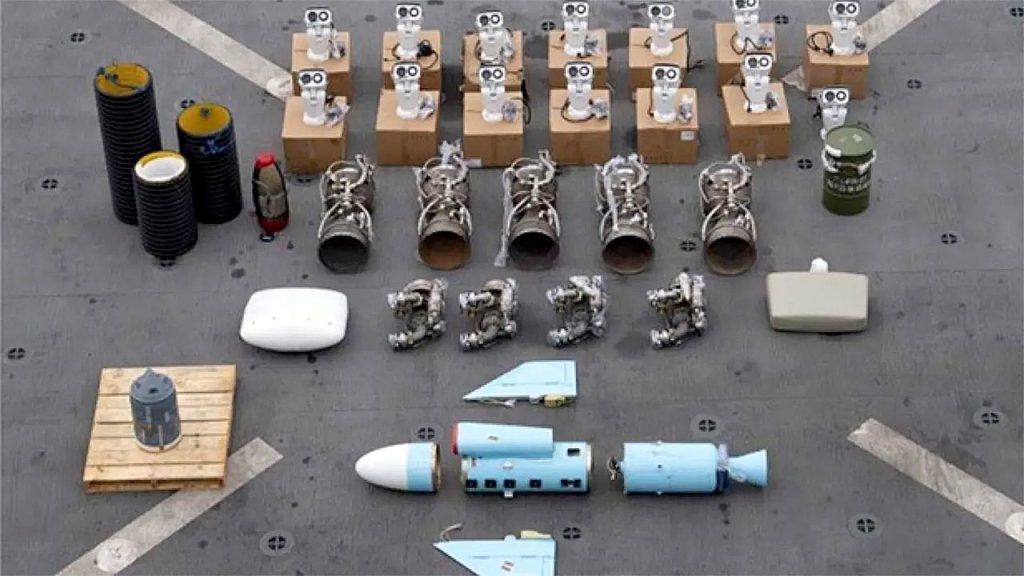Pakistani National Sentenced to 40 Years for Houthi Arms Smuggling That Led to Navy SEAL Deaths
In a case that highlights the dangerous intersection of international terrorism and maritime security, Muhammad Pahlawan has been sentenced to 40 years in federal prison for his role in a sophisticated arms smuggling operation. This operation, which channeled Iranian-made advanced weaponry to Houthi rebels in Yemen, ultimately resulted in the tragic deaths of two U.S. Navy SEALs during a boarding mission in the Arabian Sea. The sentencing marks the conclusion of a complex international investigation that exposed connections between Pakistani nationals, Iranian military officials, and Yemeni insurgents, illustrating the global nature of modern security threats and the human cost of combating them.
The conviction, handed down by a federal jury in June 2025, found Pahlawan guilty on multiple serious charges, including conspiracy to provide material support to terrorists and to Iran’s weapons of mass destruction program, specifically aiding the Islamic Revolutionary Guard Corps. The evidence presented during the trial revealed that Pahlawan was intercepted on January 11 when U.S. Central Command Navy forces, operating from the USS Lewis B. Puller, boarded a suspicious small vessel. The boarding team, which included Navy SEALs and members of the U.S. Coast Guard Maritime Security Response Team East, discovered an arsenal of Iranian-made advanced conventional weaponry aboard. The cache included components for ballistic missiles, anti-ship cruise missiles, and a warhead—precisely the type of armaments that Houthi forces had been using to target merchant ships and U.S. military vessels in the Red Sea and Gulf of Aden following the October 7, 2023, Hamas attack on Israel.
The operation took a devastating turn when two elite Navy SEALs—Special Warfare Operator 1st Class Christopher J. Chambers and Special Warfare Operator 2nd Class Nathan Gage Ingram—lost their lives during the boarding mission. According to Department of Justice reports, the tragedy unfolded when Ingram, while climbing a ladder onto the vessel, slipped and fell into the gap created by waves between the vessel and the SEAL watercraft. In a profound demonstration of the SEAL ethos to never leave a teammate behind, Chambers immediately jumped into the dangerous waters to attempt a rescue. Despite an extensive search and rescue operation launched by the Navy, both SEALs were declared dead on January 22, bringing a somber human dimension to what began as a routine interdiction operation. Their sacrifice underscores the extreme risks that military personnel face in combating global terrorism and enforcing international security measures.
Court records revealed that Pahlawan’s activities were part of a much larger smuggling network that had been operating for months. From August 2023 through January 2024, he collaborated with two Iranian brothers—Shahab Mir’kazei and Yunus Mir’kazei—who had direct ties to the IRGC. Together, they orchestrated multiple smuggling missions, transporting deadly cargo from Iran to the coast of Somalia, where nighttime ship-to-ship transfers would occur. Pahlawan’s role included preparing vessels for smuggling missions, coordinating transfer locations using coordinates provided by his Iranian handlers, and receiving payment for his participation in the operation. During the January 11 boarding, Pahlawan not only lied to the U.S. boarding team but also threatened other crew members and their families if they didn’t maintain the deception, demonstrating the lengths to which he would go to protect the smuggling operation.
The investigation culminated on February 11, 2024, when U.S. authorities secured arrest warrants for four foreign nationals involved in the smuggling network: Pahlawan, Mohammad Mazhar, Ghufran Ullah, and Izhar Muhammad. All four men, found with Pakistani identification cards, were transferred from the USS Lewis B. Fuller to the Eastern District of Virginia to face charges. While Pahlawan faced the most severe charges related to terrorism and weapons smuggling, his accomplices—Mazhar, Ullah, and Muhammad—were also charged with providing materially false information to U.S. Coast Guard officers during the vessel boarding regarding the ship’s crew and cargo. The coordinated international effort to bring these individuals to justice reflects the United States’ commitment to disrupting supply chains that fuel regional conflicts and threaten maritime security.
The sentencing of Muhammad Pahlawan to 40 years in federal prison sends a powerful message about the consequences of participating in international arms smuggling networks that support designated terrorist organizations. The case illuminates the complex web of relationships between state actors like Iran, through proxies like the IRGC, and non-state militant groups like the Houthis in Yemen. It also demonstrates the human cost of these operations—not just in the violence perpetrated with the smuggled weapons, but in the lives of service members lost while working to intercept them. As the Houthi rebels continue their attacks in the Red Sea and surrounding waters, and as Iran continues to seek ways to project power through proxies across the Middle East, the sacrifice of Special Warfare Operators Chambers and Ingram serves as a solemn reminder of what’s at stake in the ongoing effort to maintain regional stability and maritime security. Their loss, and the conviction of those responsible, underscores that the fight against terrorism and illegal arms trafficking remains as dangerous as it is essential.










